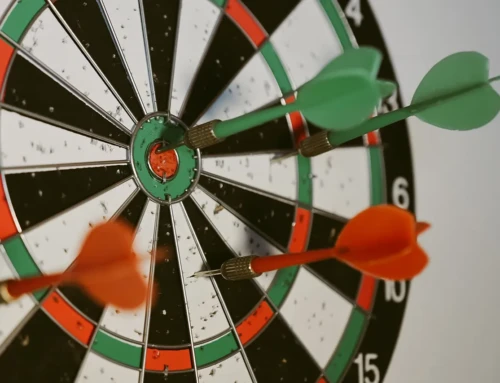Three Reasons You Should Leave That Money in The Bank Doing Nothing

When I tell clients they need to increase their reserves, I often hear things like “Well, how much do I need to keep there doing nothing?” or “I’d rather pay off my mortgage/student loan/car loan than leave all that money there doing nothing.”
Here are three reasons you should not only leave that money there, but also add to it.
Number one. The first and most important reason to keep that money in the bank “doing nothing” is to increase financial flexibility and be prepared, for the unexpected. If the wheels fall off your car on your way home tonight, the repair bill (and hopefully that’s the only bill), is going to be significant. Without cash on hand, significant, unforeseen expenses will become either lasting credit card debt or you’ll have to raid other long-term savings vehicles to cover those expenses. How does having quick cash sound now?
Number two. If the deal of a lifetime on that investment/vacation home/business opportunity presents itself, the same options exist for capitalizing on it. That is, you can borrow the money, you can pay or invest from a source of liquid, stable reserves, or you can raid other long-term assets to come up with the money you want. Borrowing the money may in fact make very good financial sense. Using someone else’s money can be a powerful investment planning tool. Leverage, as it’s commonly referred to in the financial industry, can magnify returns significantly. But it can also increase risk significantly. Having ample reserve assets can mitigate this risk because having access to capital provides negotiating leverage (a different type of leverage), to reduce the cost of the loan, and/or improve the prospective loan terms. Drawing upon reserve assets to fund this deal of a lifetime is fast, easy, and, as I say above, a source of negotiating power. Raiding other long-term assets has greater risk, opportunity cost, and actually becomes reason number three to leave that cash in reserves “doing nothing”.
Number three. The last reason to maintain ample reserves is to allow your long-term investments to truly be long-term. If you buy stocks, real estate, a business, commodity, or anything else that has a value pegged to supply and demand, it will only work efficiently if you maintain a level of financial flexibility and liquidity that will enable you to hold that asset through the tough times. Buying and selling these types of investments frequently or before they’ve come to fruition will result in high transactions costs, and increase the odds that you’ll end up selling at a bad time, negating all the benefits that investment might have brought to your financial position.
I’ve said it before and I’ll say it again: we, as human beings, have not evolved to make rational decisions about this stuff. When markets are rising, keeping money in boring old compound interest type accounts irritates the you-know-what out of us. It gnaws at us day and night and often drives us to take the money out of reserve to invest it, usually when the market is already high. The central banks know this is in our nature, and driving interest rates to zero is (among other things) a strategy to exploit it. We see our reserves earning 1 percent, and our mortgage costing us 4 percent, or the stock market rising, and we are driven to pay off that loan or invest that cash. But this completely disregards the value of maintaining access to capital.
I’ve read articles that suggest keeping reserves will only hinder long term investment returns, and that they’re obsolete nowadays. These authors use statistical and historical data to conjure charts and graphs that give “evidence” to their theories. But money is not math, and math is not money. Money is emotional, and these theories give no consideration whatsoever to the impact of human behavior on financial decision making. Articles like these are written by people who stand to benefit from you investing more of your cash, or by people who have fallen victim to the emotions I’m talking about here. One might also argue that they’re a sign that markets are getting ahead of themselves.
Now, before you start criticizing this with arguments about inflation eroding the value of cash, I never said put all your money in principal guaranteed accounts. Rest assured, I am keenly aware that that would be foolish, and I am every bit as worried about inflation as you. But I have also seen the impact of not maintaining adequate reserves first hand in deflationary periods.
Maybe I shouldn’t worry about any of this. Janet Yellen says there won’t be another financial crisis in our lifetimes. So maybe we shouldn’t leave all that money doing nothing. But then again, it couldn’t hurt to diversify, and leave some cash on hand. Just in case.
Written
November 26, 2018
Read Time
4 min read
More Posts




